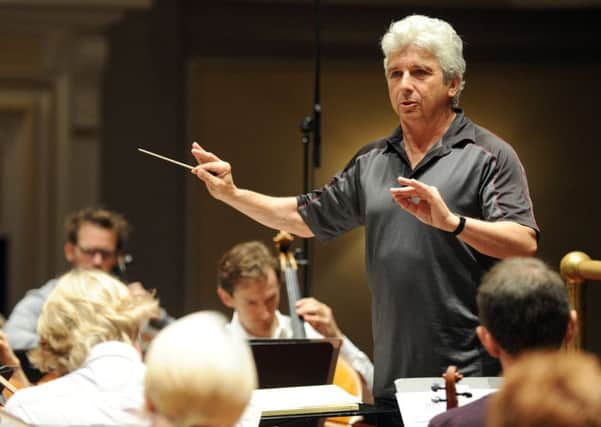David Kettle: confidence and growing ambition mark the RSNO's first US tour in 35 years


Not only will the tour strengthen the orchestra’s international identity, Thiagarajan hopes, but also feed into performances back home. “We’re cultural ambassadors for Scotland, and it’s an important part of our mission to go abroad and share what we know to be extraordinary. And by the same token, we take those influences and bring them back into Scotland – in today’s environment, that idea of cultural exchange has never been more important.”
There’s a strong US flavour, too, in the orchestra’s 2017-18 season, revealed earlier this week. Music by Adams, Barber, Gershwin and more infiltrates the orchestra’s more traditional offerings, and there’s even a brand new Tuba Concerto from US composer Jennifer Higdon, written for RSNO principal John Whitener. One of the strand’s undoubted highlights will be the Scottish premiere of Leonard Bernstein’s crazy, joyfully all-encompassing MASS, an unclassifiable mix of sacred music, rock opera and experimental theatre that will mark the culmination of a Glasgow-wide celebration of Bernstein’s centenary in 2018. Thiagarajan is perhaps understandably reluctant to describe the sprawling piece. “I think everyone should have their own experience of Bernstein’s MASS, but we’re also celebrating 175 years of the RSNO Chorus this season, and with MASS we have a work that’s really challenging for them, for the orchestra – and, in a good way, for the audience. It’s important in these times to challenge yourself intellectually, because I feel strongly that we’ve entered a time when the intellectual pursuit doesn’t seem as valued as it should be.”
Advertisement
Hide AdAdvertisement
Hide AdThere’s a gratifying focus, too, on female composers and conductors among the RSNO’s coming season – three out of its four “Symphony, Soup and a Sandwich” lunchtime concerts are conducted by women, Thiagarajan is keen to point out. And German cellist Jan Vogler takes up a special residency with the orchestra, performing two evening concerts (one featuring a new Double Concerto from major German composer Wolfgang Rihm) as well as joining RSNO string principals for a chamber recital. “We’d like to do more of this in the future – identifying both a composer and an artist in residence, and really showcasing them,” explains Thiagarajan. “It brings a chance for someone to immerse themselves in the orchestra’s culture, so that the orchestra and soloist both benefit from this closer collaboration.”
Thiagarajan’s touring ambitions continue, too, with dates in Germany, Austria, Slovenia and Italy under discussion for 2018. “We’re aiming to return to the high end of the festival scene in continental Europe,” he explains. “If you’re on the same bill as names like the Royal Concertgebouw Orchestra, for instance, it focuses the orchestra’s mind, sharpens the sound, and you sit at the edge of your seat because you give your best.”
There’s still a strong focus on the RSNO’s more familiar mainstream activities, naturally. But we’re seeing a new outwardness in the orchestra’s thinking, an ambition to look far afield and to bring the benefits back to Scotland – an openness that’s increasingly crucial in our uncertain times. ■
www.rsno.org.uk